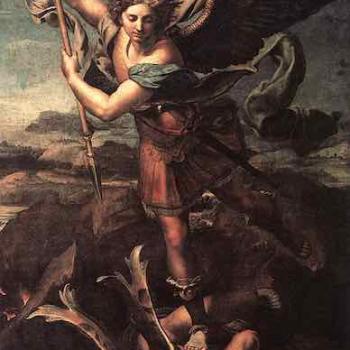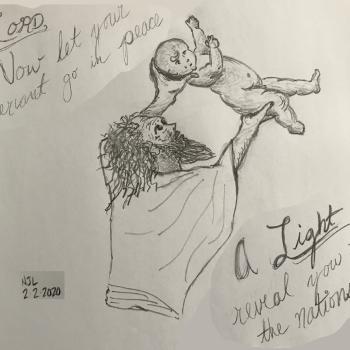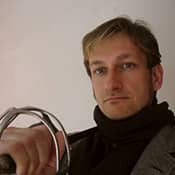In the year 1604, a young swordsman named Musashi made his way toward a duel.
At 20 years old, he had fought many duels. But this one posed special risk.
Over the preceding months Musashi had earned the wrath of the Yoshioka clan, a family of master swordsmen who ran the leading martial art school in Kyoto. Musashi had fought their grand master and left him crippled; when a new grand master took over and asked for a rematch, Musashi defeated him, too.
The Yoshioka family was not one to take disgrace lightly. When they demanded a third duel, Musashi felt in his heart that they would turn to foul play. He was right: they amassed a small army to ambush him.
But I'm getting ahead of myself.
Before the duel, the story goes that Musashi stopped to pray at a shrine. He asked for his safety and victory in the upcoming combat. Partway through the prayer he suddenly realized what he was doing; he leapt to his feet and abandoned the prayer unfinished.
No, he didn't give up dueling. He arrived early, laid a trap of his own, and won against overwhelming odds.
At the end of his life Musashi wrote:
"Respect Buddha and the gods without counting on their help."
This policy is the best way to win battles. It is also, incidentally, the best way to succeed in life.
People want the gods to answer prayers and deliver favors. I've felt that way. When you are sick, hurt, or out of money you want to believe the gods will fix it.
What kind of world would that be?
If people succeeded or failed not because of what they did, but because of who the gods favored, would the world really be a better place? Is that justice?
The gods exist because nature exists. They are here because the universe is here. As the souls of this beautiful world, they are not "for" or "against" anyone. Many creatures die each day; some of them are human people. From the perspective of nature this is fair.
This leads us to the paradox of spirituality. A spiritual person thanks the gods for success, but never blames the gods for misfortune. This is because:
- The gods do not bend the universe for us.
- The gods are always on the side of the natural way.
- You can learn from the gods how to follow this way.
- When you yourself follow the natural way, you succeed.
The gods will help you learn this way, thus they can be thanked when you succeed. If you choose to go against this way, you cannot blame those who tried to help you. If you blame the gods for bad things, you don't really believe in the gods at all; you believe in some kind of demons and genies who can be plied for favors.
Instead, you could put your trust in the gods' wisdom, follow the example of their guidance, and make your own way through the world.
This is a theology of seizing fate. Are there times when the gods will help you? Perhaps. But you cannot count on those times. You cannot beg or bribe the help of the gods. The purpose of religion is to help you become godlike yourself; it is a chance to embody the powerful spirit of the gods, which means you will overcome obstacles on your own, with or without divine intervention.
This is also the theology of heroism.
It is never an excuse to mock or abandon those who need help. It is never a reason to suffer in silence. Reach out to your fellow human beings. Ask for help when you need it, and offer it when you can.
But either take action yourself or turn to your tribe; this is the way humans succeed. We have already been given the tools that we need. The rest is up to us.
As a priest, I am often asked to pray for people. I'm happy to do so. Some people pray for protection, as Musashi nearly did. Others pray for money, for a new job, for a cure to their illness. When they ask me to pray for these things, my answer is always the same: "I will make offerings on your behalf."
What they might think this means is that I will pour out some wine and ask the gods to deliver the money, the job, or the cure. If I went before the altar with that mindset I would be failing them as a priest.
Instead, I place the offering and say, "Please guide and teach this person."
There is such a thing as good theology and bad theology. Your beliefs and theories about the gods directly drive how you interact with them. Your theology shapes your expectations of the divine, which determine whether you will be fulfilled or disappointed by your spirituality.
What is your theology?
Are you able to relate to the gods, without relying on them?
10/19/2011 4:00:00 AM





